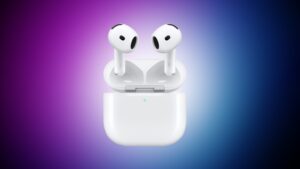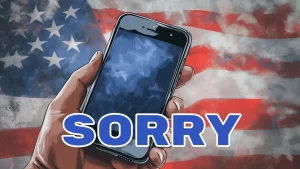Apple does the unthinkable with promise to bring RCS to the iPhone next year
In a shocking turn, Apple has confirmed in a statement that it will bring RCS to iPhone, greatly improving the experience of sending messages between iPhones and most Android phones. The announcement comes at a time when Apple is under unprecedented regulatory and legal pressure to interoperate better with non-Apple products and services and increased public outcry from users to do the same.
The statement, sent to several media outlets, reads:
Later next year, we will be adding support for RCS Universal Profile, the standard as currently published by the GSM Association. We believe RCS Universal Profile will offer a better interoperability experience when compared to SMS or MMS. This will work alongside iMessage, which will continue to be the best and most secure messaging experience for Apple users.
RCS is the new messaging standard that has been heavily pushed by Google and adopted by the GSM Association, a governing standards body for the wireless industry. It is meant to replace SMS and MMS as the default carrier-based messaging solution, taking it up to modern standards in an interoperable, device-and-platform agnostic way. While RCS is not exclusive to Android, it is supported in the messaging clients for most Android phones and Apple’s reluctance to support the standard has made it a de-facto “Android only” technology.
Apple told TechRadar that it won’t be supporting “proprietary extensions” that seek to add encryption on top of RCS and hopes, instead, to work with the GSM Association to add encryption to the standard. On Android phones some apps (such as Google Messages) support encryption while others do not.
We don’t know exactly how RCS will work on the iPhone, but the most likely scenario is that RCS clients will still look like messaging with SMS clients, aka green bubbles, while iMessage users will still be sent with blue bubbles. Apple will still want to differentiate between messages sent with Apple devices and those sent with Android phones since many features won’t be supported through RCS. But they’ll be able to co-exist and a single green bubble won’t blow up the whole group chat.
We have no idea when “later next year” is, but that phrase makes it sound like this is an iOS 18 feature due for release in the fall. We’ll likely learn more at WWDC in June, but in a nutshell, RCS support means that when you use Messages to communicate with someone who has an Android phone (or there is an Android user in the group text), you’ll get features like:
Sending messages over Wi-Fi or cellular.
Group chats up to 100 people.
Full-size files, photos, and videos (up to 100MB, probably).
Delivery and Read reciepts.
Typing indicators.
Improved security, including encryption.
The RCS Universal Profile has gone through a number of updates in the last few years to add features and capabilities, and we don’t yet know which version Apple intends to support, or which optional features it will embrace. You can probably expect everything on the list above, but perhaps not some of RCS’s more advanced or recent features.
The move is something of an about-face for Apple, which hasn’t shown any inclination to adopt RCS. At a conference last September, in fact, Tim Cook told an attendee that the best solution for blurry photos sent from iPhones to Android phones is to “Buy your Mom an iPhone.”
As for iMessage, it will still offer more features, including the ability to edit and unsend messages and superior privacy and security. In other words, there will still be an iMessage advantage, but the experience for iPhone users who send messages to those using Android phones will improve greatly—even of they’ll still need to look at green bubbles.
iOS



